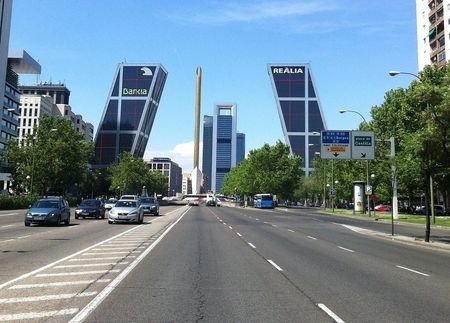‘I like to monitor the market as this helps me to get lower legal fees’

 Farfetch does not run formal tenders, unless it is for a big project, preferring instead to ask three or four law firms for a proposal, says Farfetch’s João Fachana
Farfetch does not run formal tenders, unless it is for a big project, preferring instead to ask three or four law firms for a proposal, says Farfetch’s João Fachana
João Fachana, Porto-based principal in-house counsel at Farfetch, a London-based, NYSE-listed online luxury fashion retailer, is a firm believer in the value of shopping around for the best value legal services.
“I may use the same law firm again, but I don’t like to go to the same law firm just because we have worked with them in the past,” he says. “Instead, I like to look at the market and see the opportunities and find a better service, or the same service but at a better price.” Fachana adds: “It is always better to compare law firms, rather than just using one.”
He says there are two key reasons why Farfetch uses external counsel – “for very complex and specialised matters that require a more specialised service, and for matters where language barriers are an issue”.
Asking for quotes
The company’s legal department is divided between London and the local in-house legal team in Portugal, which is the company’s technology hub and its largest office. “However, we are a small in-house team in Portugal with three members, and so sometimes we need to outsource,” Fachana adds.
Farfetch’s approach to selecting external legal advisers involves asking law firms for a quote, Fachana says. He adds that there are benefits in monitoring the market in that it can help clients get the best price for legal services.
“We are better served if we keep an eye on the market, which helps to lower the fees and it helps to find law firms that are more focused on us,” he says.
“We don’t launch formal tenders unless it is a very big project; we ask three or four law firms for a proposal and we decide based on the expertise of the law firm.”
Consulting directories
Fachana says the company also seeks recommendations and also refers to legal directories. “We seek references from colleagues in other companies, and consult Legal 500, for example, as well as looking at track records, he explains. “If it relates to a specialised matter, we will look at law firms’ portfolios, but for recurring matters we will work with the same firms depending on the issue.”
Fachana says that he favours law firms that have “added value to the company, and have added an additional level of service”. He continues: “I don’t want to see that I could have done something better.”
‘Global reach’
When it comes to deciding on what type of law firm to hire, Fachana says that if the company is dealing with a global project, his team may use a firm with a global reach, but on local issues they are more likely to seek a local firm that has a better understanding of the local market and the culture.
“We will use local firms to navigate local legislation, to help us comply with national laws, such as those regarding data protection,” he says, adding that this is especially important for a global company such as Farfetch. “We have to keep a look out for many local laws,” Fachana remarks.
Quick responses
While there are many advantages of using a global law firm, given their expertise and presence in many markets, as well as the fact they have considerable resources and are able to respond more quickly and meet deadlines, according to Fachana, he adds that there are also very good smaller firms, which can have a high level of specialisation in particular areas.

Fachana says that Farfetch’s in-house team has an increasingly heavy workload as the company grows, and consequently, two counsels were added to the group in the last year.
He adds that the in-house team’s tasks include technology contract reviews, employment matters and data protection issues.
Fachana says: “Being a tech company, we want to be innovative, and that always brings legal challenges. We expect the legal work to increase.”The company has grown through acquisitions, most recently the $250 million purchase of sports footwear and streetwear brand Stadium Goods in December, and the acquisition in July of digital marketing platform CuriosityChina.












